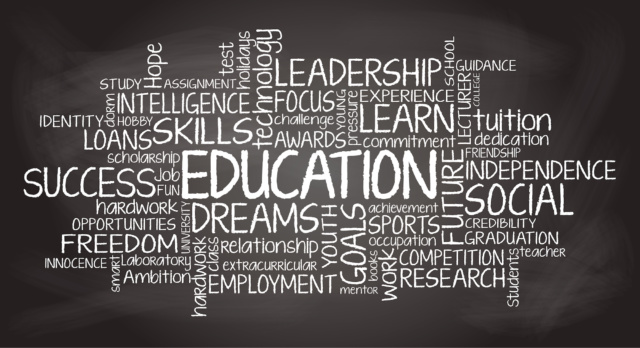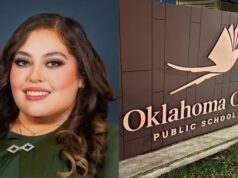
Steve Perry, a well-known advocate for school choice, gave the keynote speech to the Oklahoma School Choice Summit last month. As the name implies, the event was primarily for those supportive of school choice and those interested in knowing more about it and how they could get involved in bringing additional educational opportunities to Oklahoma parents and students.
That opponents of school choice would not be impressed with Dr. Perry’s presentation should come as no surprise. However, given the mischaracterization of Perry’s comments in an earlier commentary published on NonDoc, I thought a more balanced perspective was in order.
Given that he was speaking primarily to an audience supportive of educational choice, Perry’s comments were designed to motivate and inspire them to keep bringing greater educational opportunities to the students in their communities. His presentation was not designed to convince the skeptic, nor was it to persuade those unfamiliar with the issue. All such inspirational presentations tend to assume that the audience already has a basic understanding of the issue and is supportive of the cause.
Public schools have facilitated racism
Not surprisingly, Perry also drew on personal experience and observations of the public school systems he has encountered over the years. This personal experience included a very tough and honest discussion of racism. That America’s public school system has been a facilitator of racism (despite its proponents’ claims of the opposite) can’t be denied. Just see the Supreme Court’s ruling in Brown v. Board of Education. Or, if one would like to look more closely at our own backyard, check out Sipuel v. Board of Regents of the University of Oklahoma or McLaurin v. State Regents to see how this racism extended to institutions of higher education here in our own state. It’s not hard to understand that, in a system where the majority makes the rules, that majority will make self-beneficial rules at the expense of others, if it can. Only when forced to respect the rights of the minority will the majority do so.
RELATED
‘Toxic’ Steve Perry should embarrass charter supporters by John Thompson
Clearly, as an African-American, Perry is both sensitive to and passionate about racial equality. He speaks eloquently, if not always calmly, about the issue. He also makes a solid case for how charter schools and other educational approaches can improve the educational opportunities for racial minorities in America’s schools.
Supporters of the public school system will often tout that public schools are diverse and expose students to others from different racial, economic and religious backgrounds. I think such arguments overestimate the amount of interaction various groups have with one another, but for the sake of argument, let’s assume it’s true. Ask a single mom living in urban Oklahoma City whether she would prefer her son or daughter attend a “diverse” school in which her child might run into drug dealers, gangs or teachers who assume her child can’t learn as well as others, or one that is less diverse but more safe and more encouraging. I think we know the answer to the question.
What makes a ‘good education’?
And this is a fundamental problem with public education — we don’t all agree on what is most important in creating a “good education.” Some believe diversity in the student and faculty populations is most important. Others believe a safe environment is crucial. Some believe requiring specific subjects to be learned is important. Others believe tailoring the education to the student’s strengths and interests, while teaching important skills, is paramount. Some even believe that moral or religious instruction is integral to a good education (let the wailing and gnashing of teeth begin). But to assume we all agree on what constitutes a good education is simply unrealistic. And to assume we can create a one-size-fits-all education in which “every child receives a quality education” is grossly delusional.
Perry’s main message, if one bothered to listen, was this: Giving parents and students a variety of choices in designing their educational experience is better than locking them into a monopolistic system that expects all students to learn at the same pace, learn the same things and learn how to follow instructions. For some, this isn’t education, but rather a form of social control. Education should, first and foremost, be about what is good for the student and his or her parents. What is best for both is a range of options that allows parents to create a successful learning experience tailored to their child(ren).
However, opponents of the school choice movement do have a valid criticism. Choosing among different providers who provide the exact same thing isn’t much of a choice. If a Ford were a Chevrolet were a Chrysler, having a choice would be pointless. The purpose of choice is to offer variation. Choice should be an expression of the individual. It should empower individuals to take control of their lives and chart their futures. A lack of choice dulls the mind. It creates a sense of entrapment. It leads people to believe their future is out of their control.
In a speech given to the Fairfax County Public Schools Leadership Conference, Tony Wagner of Harvard University’s Innovation Lab explains companies are coming to realize “that the skills needed to succeed in a competitive academic environment bear absolutely no relationship to the skills needed to succeed” in the modern economy. Let that sink in. What we are teaching and how we are teaching it isn’t sufficient. Wagner is also an advocate of choice because it is the best mechanism for providing innovative learning approaches that will prepare our students for life in the 21st century.
It’s time to move past criticisms of style, and it’s time to talk real substance. As I have explained before, choice and the ability to individualize the educational experience are crucial factors to ensuring our students can compete in the 21st century.






















